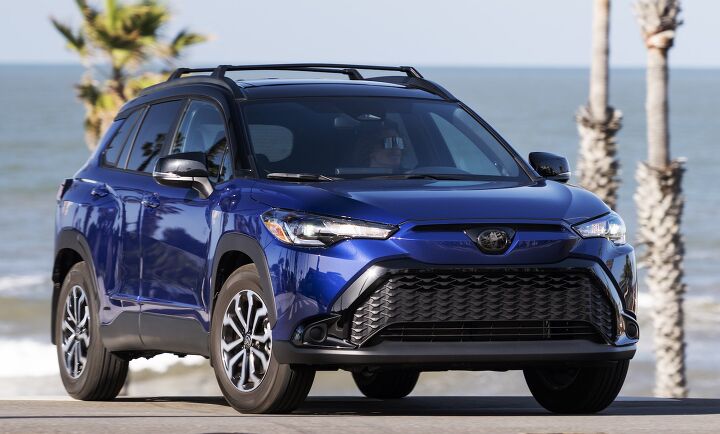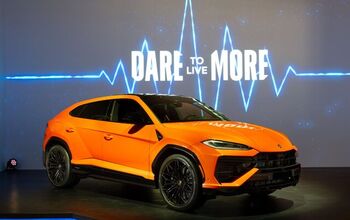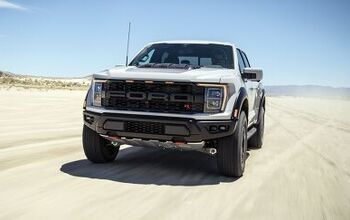Toyota Corolla Cross Hybrid Priced From $27,970, AWD Standard

Come this summer, there will be a new contender in town for the choice of Default Car. Gifted a comfortingly familiar name, standard all-wheel drive, and a price tag south of thirty grand, it is all but assured Toyota will be able to quickly sell every single Corolla Cross Hybrid they can produce.
Whether one likes them or not, it’s difficult to argue against Toyota’s prowess in the field of hybrid powertrains. Under the hood is a 2.0-liter four-banger working in concert with electric motors to provide 196 horsepower, a decent jump from the standard car’s 169 ponies which all seemed destined for the glue factory when this author was behind the wheel last year. All-wheel drive is part of the deal in every trim of the Corolla Cross Hybrid thanks to the trio of electric motors. A small lithium-ion battery is tucked under the rear seats.
Which, as per Toyota tradition, starts with the S trim. This $27,970 ticket grants access to the likes of an 8-inch infotainment screen with wireless smartphone integration, cloth upholstery, alloy wheels, and LED headlamps. The brand’s Safety Sense 3.0 is also on board, bringing lane departure tools, dynamic cruise control, pre-collision systems, and other active safety gear. Making the $1,320 walk to a SE trim brings tinted glass, better seats, the option of flashier colors, and a few other niceties. This will likely be the volume seller. Atop the heap is an XSE that adds snazzier wheels, improved head- and taillamps, and gear like a power driver’s seat for $31,065.
The interior will look familiar to Toyota owners, which we imagine is exactly the point. A moonroof can be fitted to the SE but we recommend saving yer $940 and either putting it in your pocket or getting the optional JBL audio system.
Most will be able to afford that largesse, if the company’s fuel economy estimates are anywhere near accurate (and we have no reason to believe they are not). Toyota estimates 45 mpg city and 38 mpg highway for a combined rating of and 42 mpg. Those are increases of 16, 6, and 12, respectively compared to an equivalent Corolla Cross equipped with all-wheel drive. Fuel sippers, unite.
The 2023 Corolla Cross Hybrid, along with the gas model that launched in the 2022 model year, will be assembled here in America at the brand-new Mazda/Toyota Manufacturing plant in Alabama. Look for the car in dealers this summer.
[Images: Toyota]
Become a TTAC insider. Get the latest news, features, TTAC takes, and everything else that gets to the truth about cars first by subscribing to our newsletter.

Matthew buys, sells, fixes, & races cars. As a human index of auto & auction knowledge, he is fond of making money and offering loud opinions.
More by Matthew Guy
Latest Car Reviews
Read moreLatest Product Reviews
Read moreRecent Comments
- W Conrad I'm not afraid of them, but they aren't needed for everyone or everywhere. Long haul and highway driving sure, but in the city, nope.
- Jalop1991 In a manner similar to PHEV being the correct answer, I declare RPVs to be the correct answer here.We're doing it with certain aircraft; why not with cars on the ground, using hardware and tools like Telsa's "FSD" or GM's "SuperCruise" as the base?Take the local Uber driver out of the car, and put him in a professional centralized environment from where he drives me around. The system and the individual car can have awareness as well as gates, but he's responsible for the driving.Put the tech into my car, and let me buy it as needed. I need someone else to drive me home; hit the button and voila, I've hired a driver for the moment. I don't want to drive 11 hours to my vacation spot; hire the remote pilot for that. When I get there, I have my car and he's still at his normal location, piloting cars for other people.The system would allow for driver rest period, like what's required for truckers, so I might end up with multiple people driving me to the coast. I don't care. And they don't have to be physically with me, therefore they can be way cheaper.Charge taxi-type per-mile rates. For long drives, offer per-trip rates. Offer subscriptions, including miles/hours. Whatever.(And for grins, dress the remote pilots all as Johnnie.)Start this out with big rigs. Take the trucker away from the long haul driving, and let him be there for emergencies and the short haul parts of the trip.And in a manner similar to PHEVs being discredited, I fully expect to be razzed for this brilliant idea (not unlike how Alan Kay wasn't recognized until many many years later for his Dynabook vision).
- B-BodyBuick84 Not afraid of AV's as I highly doubt they will ever be %100 viable for our roads. Stop-and-go downtown city or rush hour highway traffic? I can see that, but otherwise there's simply too many variables. Bad weather conditions, faded road lines or markings, reflective surfaces with glare, etc. There's also the issue of cultural norms. About a decade ago there was actually an online test called 'The Morality Machine' one could do online where you were in control of an AV and choose what action to take when a crash was inevitable. I think something like 2.5 million people across the world participated? For example, do you hit and most likely kill the elderly couple strolling across the crosswalk or crash the vehicle into a cement barrier and almost certainly cause the death of the vehicle occupants? What if it's a parent and child? In N. America 98% of people choose to hit the elderly couple and save themselves while in Asia, the exact opposite happened where 98% choose to hit the parent and child. Why? Cultural differences. Asia puts a lot of emphasis on respecting their elderly while N. America has a culture of 'save/ protect the children'. Are these AV's going to respect that culture? Is a VW Jetta or Buick Envision AV going to have different programming depending on whether it's sold in Canada or Taiwan? how's that going to effect legislation and legal battles when a crash inevitibly does happen? These are the true barriers to mass AV adoption, and in the 10 years since that test came out, there has been zero answers or progress on this matter. So no, I'm not afraid of AV's simply because with the exception of a few specific situations, most avenues are going to prove to be a dead-end for automakers.
- Mike Bradley Autonomous cars were developed in Silicon Valley. For new products there, the standard business plan is to put a barely-functioning product on the market right away and wait for the early-adopter customers to find the flaws. That's exactly what's happened. Detroit's plan is pretty much the opposite, but Detroit isn't developing this product. That's why dealers, for instance, haven't been trained in the cars.
- Dartman https://apnews.com/article/artificial-intelligence-fighter-jets-air-force-6a1100c96a73ca9b7f41cbd6a2753fdaAutonomous/Ai is here now. The question is implementation and acceptance.





































Comments
Join the conversation
I understand economics and realize that dealers will be list ++ on these. Sub $30,000 is not possible.
Looks like a hit. Going to steer daughter in law towards one if Toyota actually has some in stock by summer 2024.